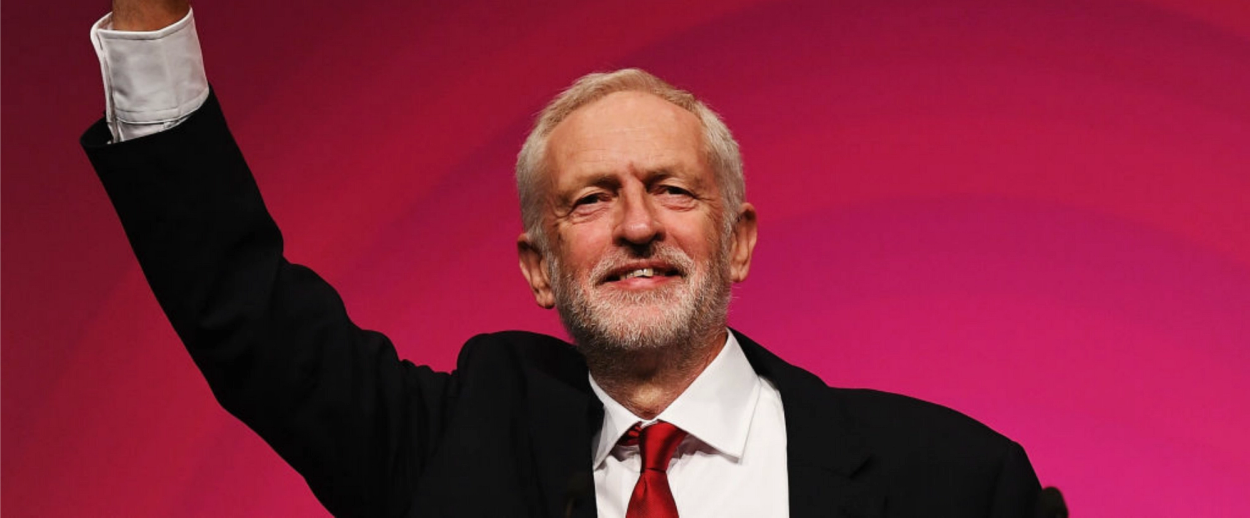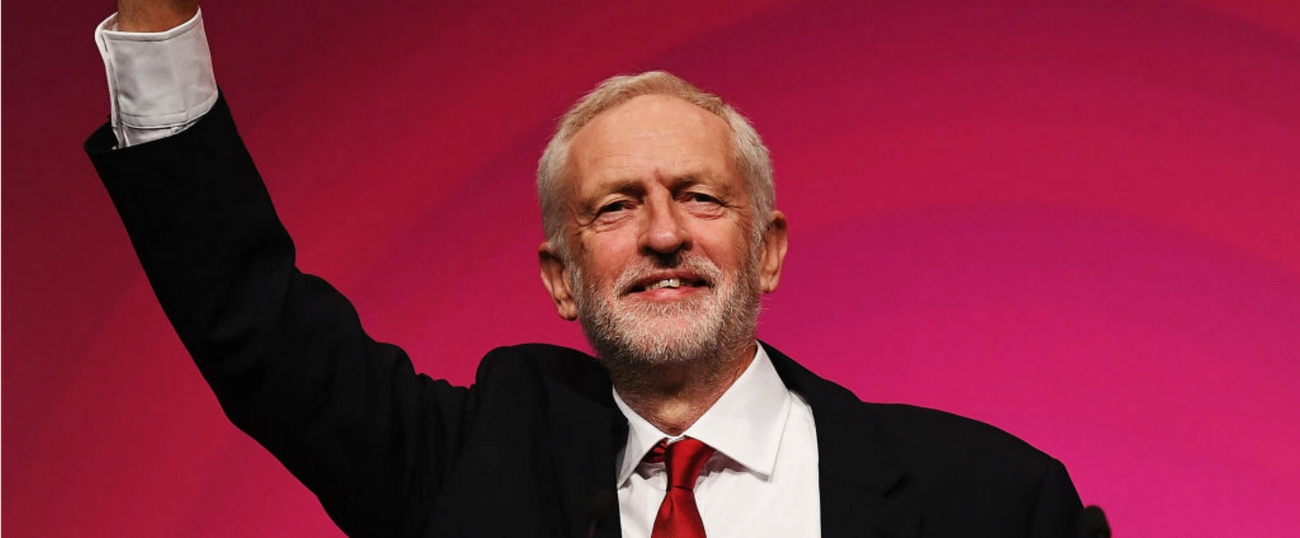Israel, Not Corbyn, Is the Real Threat to the Jewish Left
A Corbyn supporter responds to Paul Berman’s critique of the Left




The full Tablet series featuring Paul Berman’s original three-part essay on the state of the contemporary Left, along with responses to Berman from writers across the political spectrum, is collected here.
Paul Berman warns of a Western Left characterized by an irrational hatred of Israel, a reflexive blame-America posture, and a blind eye to Islamist fanaticism. In response to this perceived plague, he calls for a “preliminary charge” by progressives of conscience against “anti-Zionists and the Farrakhanites and any lingering Chavistas”, along with movements like BDS and individual leaders like Jeremy Corbyn.
I don’t accept Berman’s underlying presumptions, and hence see his warnings as misplaced. Let’s start with his most influential contemporary target. Berman approvingly cites the consensus of UK Jewish organizations that “a culture of classic anti-Semitism [has] taken root” inside Corbyn’s Labour Party. But is that factual? No one has been able to disprove the conclusion of Labour’s internal review, which found that cases of anti-Semitism within the party’s ranks represent “less than 0.1 percent” of Labour’s members.
But I am admittedly biased. I happen to admire Corbyn’s unapologetic opposition to neoliberal economics and advocacy for a more just, humane society. I also admire Corbyn for being, in the words of the Israeli writer Gideon Levy, “a staunch, consistent opponent of Israel’s occupation policy.” To Levy, opposing that occupation is not only Corbyn’s “right; as a true leftist it’s his duty.”
It is Corbyn’s consistent and principled fulfillment of that duty that I believe explains why he has been labeled an anti-Semite. His foes are following an old playbook: Defenders of the Israeli government have long cheapened the meaning of the term “anti-Semitism” and the memory of the Holocaust by deploying both as weapons to silence defenders of Palestinian rights. It is striking that Corbyn’s detractors, like Berman, see no irony in attacking him for appearing at an event with Hajo Meyer, an Auschwitz survivor. At the event, not Corbyn but Meyer himself criticized the exploitation of Nazi crimes to launder Israeli crimes, including the cruel besiegement of Gaza As the Jewish son of a father who in infancy survived the Nazi occupation of Budapest, I share Meyer’s objection to the weaponization of Jewish suffering.
Jewish voices like Meyer, and I, presumably subscribe to what Berman calls “the mania for eliminating the faraway Jewish state, or, at least, the mania for singling out the Jewish state for unique obloquy.” Both “manias” are worthy of reflection. It is true that a one-state solution has become increasingly popular in the Palestinian solidarity movement, and the Left more broadly. And it is true that a one-state outcome would mean that Israel could no longer define itself as the state of the Jewish people, but instead as a state of its citizens, of any religion—in others words, a democratic one.
On a moral level, I favor that outcome. How can I oppose democracy with equal rights for all? However, on a practical level, I do not insist on it. I see a democratic one-state as far less politically realistic than a plan with broad-based international support, i.e. a two-state solution. There are, of course, many on the progressive left who would take issue with that assessment, pointing not just to the principle of equality but to the Israel-created “facts on the ground” as prohibitive of a genuine two-state future. That disagreement is a valid and vital one. But to say that those who favor a single democratic state that treats all citizens equally are consumed by a “mania for eliminating” is as ludicrous as it would be if the charges had been levied against opponents of South African apartheid. Proposing to replace a noxious political regime with a more humane and equitable one is the opposite of a destructive impulse.
There is a further irony to this particular tack. It is now uncontroversial that Israel was founded on an eliminationist ethic of its own: the ethnic cleansing of Arab populations from land that would become the Jewish state. As the Israeli historian Benny Morris observes:
“[T]ransfer was inevitable and inbuilt in Zionism – because it sought to transform a land which was ‘Arab’ into a Jewish state and a Jewish state could not have arisen without a major displacement of Arab population.”
Zionism’s deliberate “major displacement of Arab population” could only be fully reversed with a democratic one-state solution in the whole of Israel-Palestine and the right of return for all Palestinian refugees. That may well be politically impractical. But how is acknowledging that history—and calling for equality and justice for the displaced Arab population—an act of “mania”?
The same holds for what Berman calls “the mania for singling out the Jewish state for unique obloquy.” Here again, I think the accusation applies in the other direction. Israel is in the 52nd year of the world’s longest ongoing military occupation. Despite the claims of historical revisionists, it has never made a single peace offer that even approaches minimal Palestinian rights or respect for international law. Meanwhile, its violent enforcement of that occupation is backed by the world’s largest superpower, both of its two main political parties, and the bulk of its media. If there is any “mania” operating here, it is the one that can somehow defend or run ideological interference for that occupation even as it routinely commits the most savage of crimes. Since March, Israel has gunned down unarmed civilian protesters in Gaza on a weekly basis. The Trump administration has offered its full support for Israel’s violence while even cutting the already meager U.S. aid given to Palestinian refugees. If Israel seems to be singled out for “unique obloquy,” then, it is not because of its Jewish character, but its unique impunity.
Not only is ascribing anti-Semitism to Israel’s critics misplaced, and cynical, it also obscures its presence much closer to home. One of Israel’s chief political allies is the U.S. Christian far right, whose affinity for current Jewish sovereignty in the Holy Land is premised on the future fulfillment of an anti-Semitic prophecy. Another ally is Hungarian Prime Minister Viktor Orban, who enjoyed Benjamin Netanyahu’s support for his propaganda campaign against the billionaire Jewish financier George Soros. Human rights groups in Israel have recently called on the government to stop arming neo-Nazi groups in Ukraine, following a history, Haaretz observes, in which “Israel has armed anti-Semitic regimes.”
If combating anti-Semites is the goal, then defenders of Israel like Berman are well-positioned to do something about it: they could call on Israel to stop allying with them. But, that leftist defenders of Palestinian rights are instead the targets of Berman’s obloquy, should tell us something about his real commitments, and how seriously we should take his dire warnings.
Aaron Maté is a Brooklyn-based journalist and contributor to The Nation. He has previously hosted and produced for The Real News and Democracy Now! Follow him at @aaronjmate.